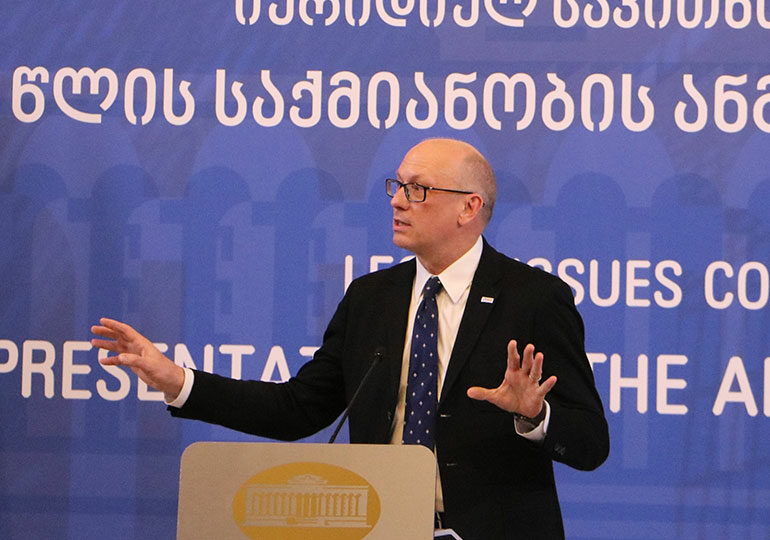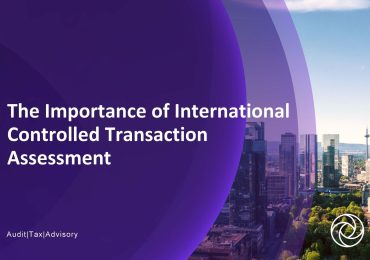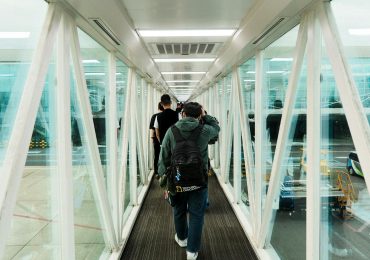Georgia faces the challenge of achieving a broad-based economic recovery from the COVID-19 pandemic. It also has an opportunity to consolidate its past development gains by delivering a bold vision for the future: reforms that incentivize investment, innovation, and integration with Western markets. To support that process, USAID is elevating our partnership with Georgia, working with the public and private sector to support reforms and build a more inclusive economy.
Covid-19 Is First and Foremost a Public Health Emergency
As societies around the world prioritize protecting their citizens, governments have been forced to make difficult choices; in many cases, temporarily closing businesses and schools. This has created extraordinary hardship for working people, families, and business owners around the world. This is true in my country, the United States, and here in Georgia.
A recent public opinion survey found that a majority of Georgians support the measures taken by the Government of Georgia to prevent the spread of the virus. As we know, lockdown measures come with significant economic costs. Gross domestic product declined by 6.1% in 2020. Some of Georgia’s largest and fastest-growing sectors were the most vulnerable; the tourism, hospitality, and restaurant industries have been hit especially hard.
While many of Georgia’s current economic troubles can be attributed to COVID-19, the underlying problems predate the pandemic. In fact, COVID-19 exposed major vulnerabilities in Georgia’s development, reinforcing the need for reforms to stimulate greater private sector investment, innovation, and economic diversification.
To make this possible, Georgia’s political leaders need to compromise and build the consensus necessary to move the country beyond repeated cycles of polarization and political crisis. Partisan disagreement is a normal and healthy feature of any democracy. It becomes destructive, however, when political rhetoric is focused on attacking opponents rather than discussing how best to respond to the needs of citizens.
An effective response to COVID-19 requires consensus. In dealing with the health and economic implications of the pandemic, the Government of Georgia has a chance to engage communities, civil society, and the private sector to articulate a bolder economic vision for the future. By doing so, it can demonstrate its commitment to and accountability for achieving Georgia’s development goals, including deeper integration with the West. To help Georgian society build on its past successes and continue to move forward, USAID is redefining our relationship with our Georgian partners in several key areas.
Transparent and Accountable Economic Governance Based on the Rule of Law
Georgia’s current economic situation calls for more investment, both from domestic and international sources, to create long-term job opportunities in the sectors with the highest growth potential. These include light manufacturing, intellectual services, information and communications technology, and logistics.
The benefits of growth in these areas are clear: higher-value jobs for workers; new products and services that can compete on international markets; enhanced integration with Euro-Atlantic economic institutions; and development of a regional transport, logistics, and services hub with strong links to both Europe and Asia.
To accomplish this, Georgia’s policymakers will need to commit to creating a system of fair, predictable, and transparent laws and regulations. Much of the policy framework is already in place. However, stronger implementation and enforcement are needed, including in areas like insolvency and tax dispute resolution. Just as USAID supported Georgia’s Parliament and judicial institutions through four earlier waves of judicial reform, we are today even more committed to supporting our Georgian partners to fully and effectively implement these key reforms. This will reassure investors and citizens alike that Georgia’s courts are fair, impartial, and predictable – a basic precondition for sustained economic development.
Capital market reform is also important. A dynamic economy depends on capital markets that can convert savings into investment and funnel capital into high-potential industries. Georgia has made much progress in this area, namely the Law on Investment Funds passed in 2020 with technical assistance from USAID and other donors. The new law creates the regulatory framework for capital markets that can provide businesses with the financing they need.
USAID will continue to support the implementation of judicial and economic reforms. At the same time, we recognize that success will require Georgia’s elected officials to move out of the post-election political impasse. Durable, pluralistic democratic institutions – the kind that foster political stability and a degree of consensus between ruling and opposition parties – are prerequisites for sustainable, market-driven economic growth.

Strengthened Efforts at Economic Diversification, Market Integration
USAID supports economic diversification and deeper integration with Western markets because doing so creates new opportunities for businesses – and employee incomes – to grow. It also reduces Georgia’s economic dependence on markets in countries which do not share Georgia’s values of democratic governance and economic freedom.
Additionally, these linkages – in trade, services, and energy transmission – form an anchor of economic opportunity that can help Georgia move closer to Europe. They create new incentives for governance and rule of law reforms, and make a strong case to business owners and the public for why Georgia’s European path is the right way forward.
To continue making real progress, it is important that Georgia meets its EU Association Agreement and European Energy Community obligations. Doing so helps create an environment where both domestic and international companies view Georgia as an attractive market for investors. It also helps anchor Georgia in the community of stable western democracies, another key factor for sustained private sector investment.
Improved Education and Skills-based Learning
The most valuable asset of any country is its people. We see Georgians of all ages making an impact here as entrepreneurs, public servants, community leaders, and professionals of all stripes. Unfortunately, many others don’t get a fair chance. Twenty-seven percent of young people are neither in school nor in work, an unacceptably high number.
This is largely because Georgia’s education system doesn’t produce enough graduates with the skills that Georgia’s dynamic modern businesses need the most. The
problem is fixable, but it requires reform at multiple levels, from primary schools to universities to the vocational sector. The Government of Georgia has an important
role to play, fully implementing its ambitious education reforms so that graduates leave school in a position to succeed. USAID is supporting this process, helping teachers and school administrators across the country deliver student-centered education.
Georgia’s private sector can also contribute to skills-based education and workforce training initiatives. Businesses can view human capital as an investment – not only in Georgia’s future, but in their own commercial viability. This is a major priority for USAID. We are currently developing a new, private-sector oriented, industry-led skills development program scheduled to go online later this year.
Turning Vision Into Commitment, and Commitment Into Policy
USAID has supported Georgia since 1992. Now, we are elevating our partnership to help Georgia successfully overcome the challenges that remain on the path to long-term development.
Georgia’s political leadership – both ruling and opposition parties – and the Georgian people all want to see the country become more secure, prosperous, and democratic, growing ever closer to Europe. Georgia has made notable progress toward those goals, but the past year has shown us that a bolder vision is needed. Now is the time for the Government of Georgia to demonstrate its commitment to a brighter future by taking, and implementing, the needed difficult economic policy decisions.
Forbes Georgia: სარედაქციო გუნდი
















